To thoroughly implement the spirit of the 14th Party Congress of NPU, promote the in-depth and practical advancement of the “Chief Engineer Education Culture”, and comprehensively integrate this culture into talent development initiatives, thereby enhancing the quality of education at QMES, a focused seminar was held on the morning of November 21st at the West Building of Graduate Studies. The seminar focused on advancing the “Chief Engineer Education Culture” initiative. Dai Fuping, Party Secretary of QMES, Wang Yongxin, Vice Dean for Teaching, department heads, teachers, class advisors, counsellors, and all staff from the QMES’s Education and Teaching Centre attended the meeting, which was chaired by Wang Yongxin.
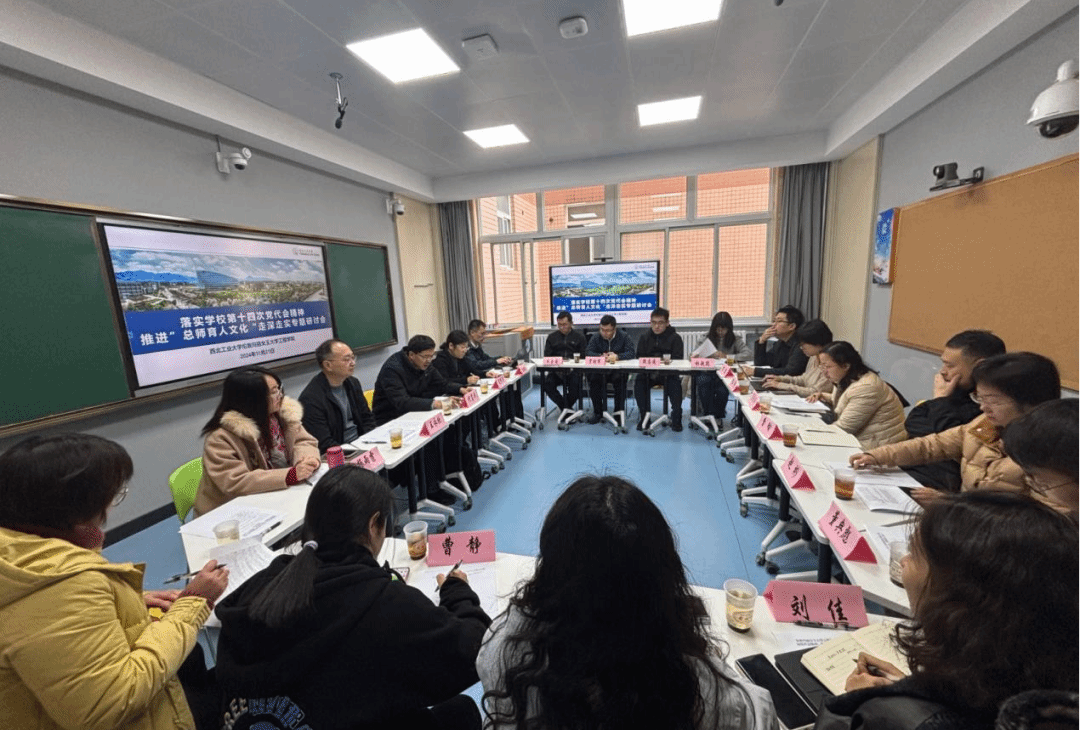
At the beginning of the meeting, Dai Fuping conveyed the spirit of the 14th Party Congress of NPU and elaborated on the specific requirements and top-down design for advancing the “Chief Engineer Education Culture” at NPU. He emphasised that the entire faculty and staff must align their thinking and raise their awareness, integrating the “Chief Engineer Education Culture” into the entire process of undergraduate talent development. The focus should be on educating students with profound expertise, strong systems thinking, practical competence, and a sense of responsibility. This goal can be achieved by introducing advanced educational concepts and teaching resources from QMUL, leveraging the educational advantages of both sides, continuously optimising the curriculum, strengthening practical teaching, and consistently enhancing the quality of self-directed education for “Chief Engineer-type” outstanding and innovative talents.
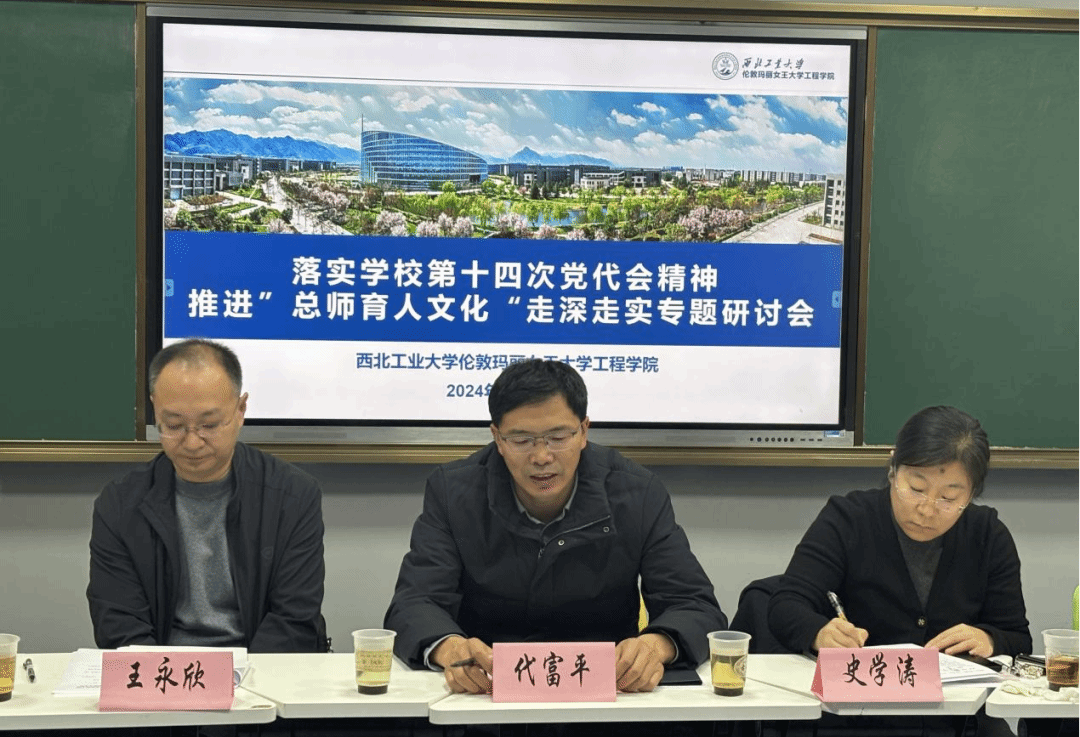
Subsequently, Wang Yongxin provided an in-depth interpretation of the connotations and key principles of the “Chief Engineer Education Culture” and gave a detailed overview of the overall teaching situation at QMES in recent years. He pointed out that the term “Chief Engineer” not only refers to professional technical leaders such as chief engineers and chief designers, but also represents a spirit of excellence and a willingness to take responsibility. QMES aims to deepen educational and teaching reforms, focusing on the development of first-class modules, textbook construction, and other areas. The goal is to continually enhance digital literacy and establish a series of top-tier digital modules, with a primary focus on new forms such as modules based on knowledge graph frameworks. In addition, QMES seeks to create high-quality textbooks that embody the distinctive features of JEIs.
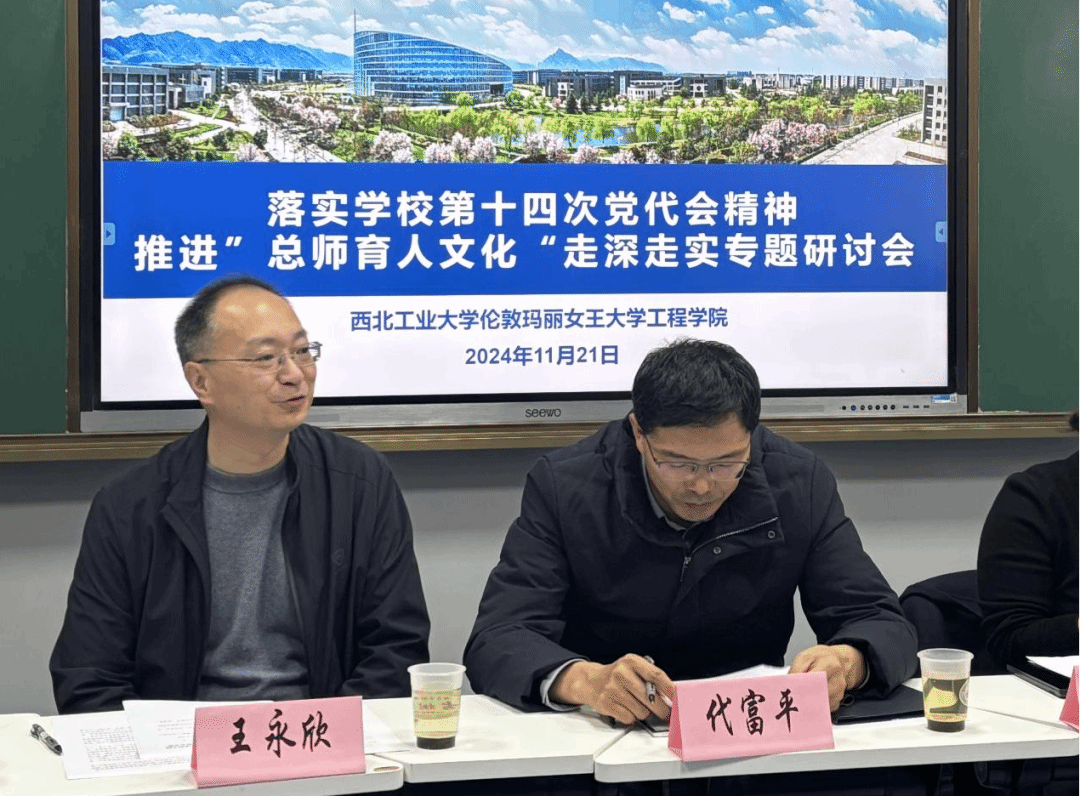
During the discussion session, department heads, teachers, and counsellors, along with class advisors, spoke from their respective roles about how to effectively implement a “Chief Engineer Education Culture”. Department heads highlighted the fundamental role of the curriculum system in education, expressing the need to closely align with industry demands and disciplinary development trends. They advocated for optimizing the structure of the curriculum system, strengthening practical teaching components, and focusing on fostering students’ holistic system concepts and innovative capabilities. Additionally, they emphasized the importance of enhancing cooperation and exchange with renowned international universities and enterprises, introducing high-quality module resources and advanced teaching methods to elevate QMES’s international education standards.
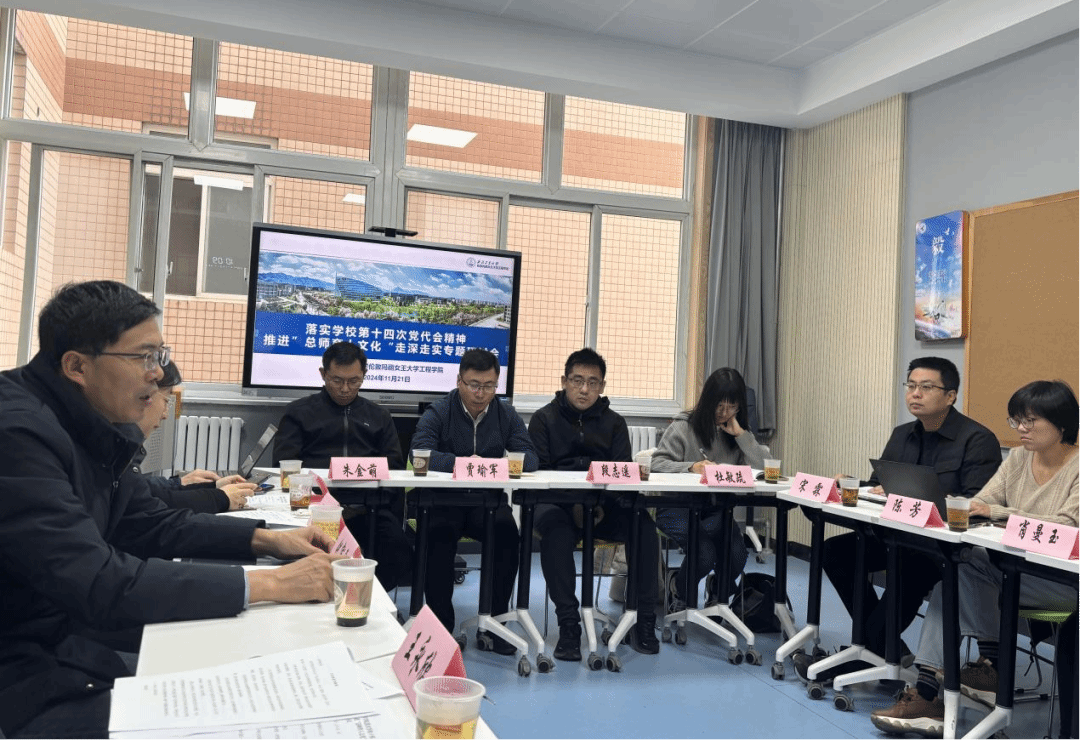
Teacher representatives engaged in an in-depth discussion on the practical application of “Chief Engineer Education Culture” in teaching. They emphasized the importance of interdisciplinary integration and practical teaching, actively incorporating the philosophy of “Chief Engineer Education Culture” into the curriculum through various means such as introducing engineering case studies, strengthening practical teaching components, and inviting industry experts for lectures. Efforts were made to actively guide students to participate in various academic competitions and innovative practice activities to stimulate their innovative potential and practical abilities. Teachers also explored how to cultivate students’ logical and critical thinking skills from the perspective of module-based political education, to promote the in-depth practice of “Chief Engineer Education Culture” in teaching through these initiatives.
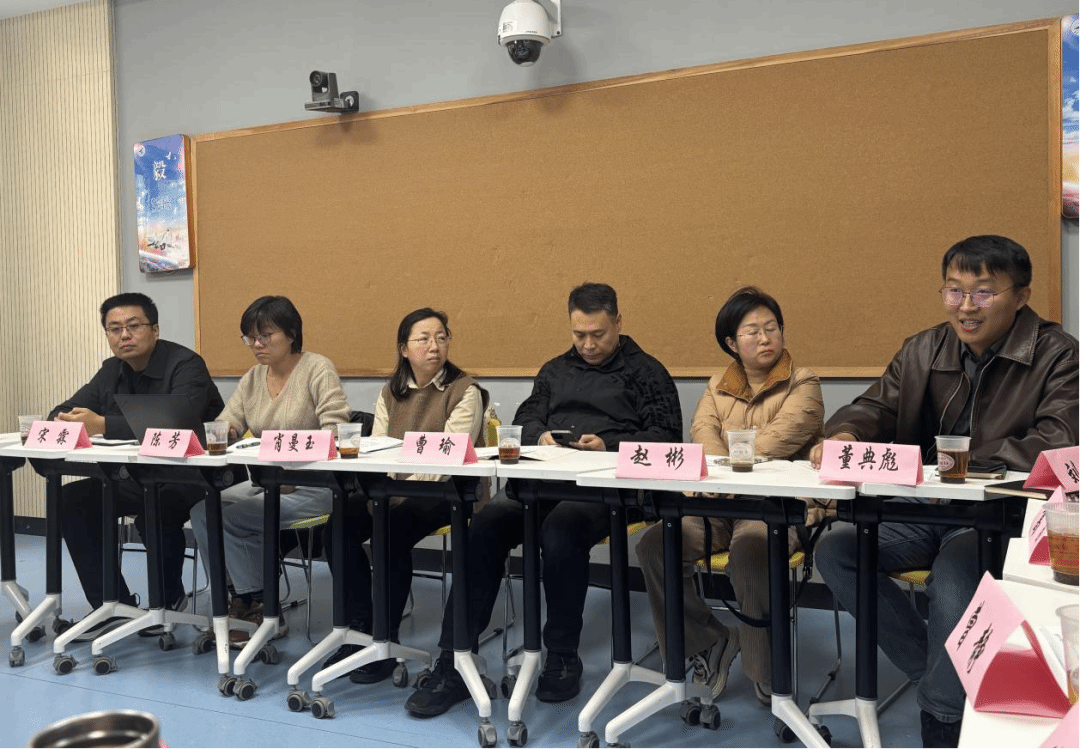
Class advisors and counsellor representatives have indicated that they will actively play their significant roles in the in-depth implementation of “Chief Engineer Education Culture”. They will enhance daily management and ideological education to guide students in establishing correct worldviews, outlooks on life, and values, and to stimulate their enthusiasm for learning. In addition, they will undertake career planning for students, providing comprehensive and multi-level career planning services through personalised guidance, industry expert lectures, school-enterprise cooperation projects, and a wealth of domestic and international internship and training opportunities. This support aims to help students clarify their career goals and broaden their global perspectives.
After the meeting, Dai Fuping delivered the summarising address. He fully affirmed the proactive exploration and significant achievements of QMES in the practice of “Chief Engineer Education Culture”. Concurrently, he identified the existing issues and deficiencies and outlined the subsequent work plans and measures for improvement. He stated that QMES will continue to deepen reforms, integrate “Chief Engineer Education Culture” into the entire process of talent cultivation, and actively explore pathways for nurturing top-tier innovative talents.
The successful convening of this special seminar not only provided strong guidance and support for QMES to further advance the in-depth implementation of “Chief Engineer Education Culture”, but also injected new momentum and vitality into the enhancement of QMES’s education quality. In the future, QMES will continue to uphold the philosophy and spirit of “Chief Engineer Education Culture”, constantly exploring and innovating in the models and methods of international education, contributing to the cultivation of “Chief Engineer-type” talents at NPU with the strength of JEIs.
Photo: Fan Lanyu
Edit: Wang Tongshu, Chen Xinyan
Translate: Shen Xinyi
Review: Wang Yongxin

